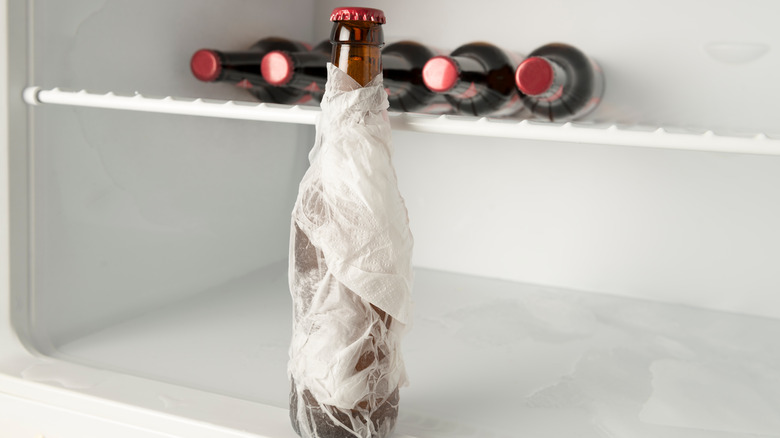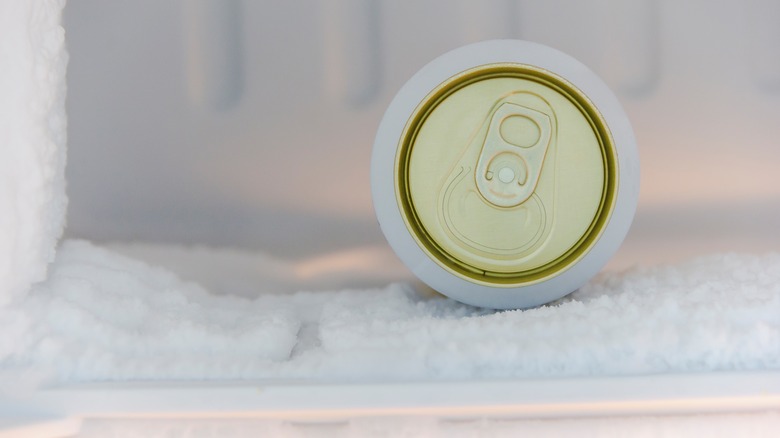Wrap Beer In A Damp Cloth And Freeze For A Chilled Brew In A Flash
There's nothing quite like a cold beer on a hot day, or any day really. What happens when you have beers but they're not cold enough? Sure, you could stick those cans or bottles in the fridge but you would have to wait a couple of hours before those beers get cold enough. You could use the sous vide method to chill your beer fast, but that's assuming you have a sous vide machine. You could also try pouring your beer over a glass of ice, but that will just water down your beer — and while that may not be so bad for a light lager, who wants to water down the robust flavors of a craft beer?
You can speed things up by using the freezer, but before you do, make sure you add an extra step for even faster chilling: Wrap that can or bottle of beer in a damp cloth or paper towel, then place it in the freezer. In as little as 15 minutes, you can enjoy a frosty cold beer.
Does the trick actually work?
While some people swear by the wet paper towel or cloth trick, others are not convinced that it works. Proponents cite evaporation as the reason the trick works: As the wet cloth or paper towel dries out and evaporates, it absorbs the beer's warmth, causing the beer to cool down more rapidly than on its own in the freezer since water is a better conductor than air. Opponents argue that the extra layer actually acts as insulation and slows down the rate of cooling rather than accelerates it. Experiments conducted by different people ended up with different results: While one experiment showed that a wrapped bottle ended up being warmer than an unwrapped one, another experiment found that wrapping a bottle sped up the cooling process by 23% compared to an unwrapped one, while a wrapped bottle placed near the air fan in the freezer improved cooling times by 60 to 70%.
If you decide to try the damp cloth or paper towel trick, remember to keep an eye on the clock or at least set an alarm if you're chilling beers in the freezer. Otherwise, you risk your beers freezing. At the very least it will affect the taste and carbonation of your beer, at the worst, your beers might explode.

